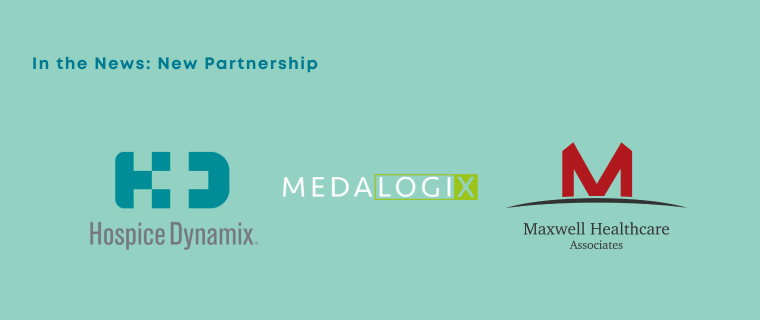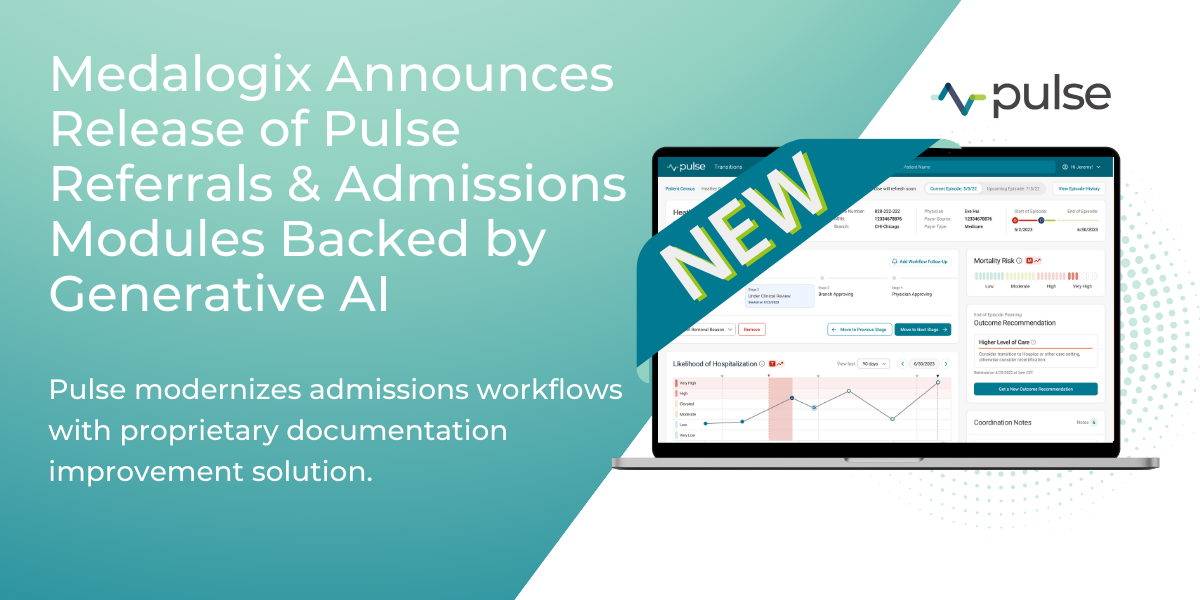Nashville Medical News: Should Caregivers Use Technology To Predict Your Death?
Do you want the same algorithms that predict which Amazon products you’re likely to purchase to also predict your death? Nashville Medical News published a byline our CEO that answersthat question.
Predictive modeling is everywhere. Googleusespredictive algorithms to guess what we’re searching as we’re typing in the search bar. Amazonuses formulas to forecast what I might buy today based on millions of purchases made by people like me.
And now, similar algorithms are being applied to health care to predict outcomes that are life-changing—or end-of-life changing. Care providers are using predictive analytics to determine which patients are most at risk of passing away within 90 days.
Is this a good thing?
Well, statistically patients who are dying, and their families, report better patient satisfaction ratings the earlier they are transferred into hospice or palliative care programs. Why? Because it’s early enough to put affairs in order, early enough to call an old friend, early enough to take a bucket-list trip.
If a patient knows—because of the combination of concrete data and acaregiver’s experience—that he is nearing his final days, he can plan and determine how he would like to spend them. And that’s more than what most Americans are able to do. In fact, even though 80 percent of us would rather die at home, 60 percent of Americans die in acute care hospitals and 20 percent die in nursing homes, according to theStanfordSchool of Medicine. This leaves only 20 percent of us who will die the way we had hoped. Not only is that tragic, this trend is costing the U.S. healthcare system billions of dollars—without necessarily resulting in better health outcomes for patients or satisfaction with care, according to theAnnals of Internal Medicine.
It doesn’t have to be this way. Technology and healthcare can work hand in hand to ensure our final days are comfortable and dignified. Predictive analytics can helpcaregiversknow when it’s time to discuss end-of-life care, home care, hospice and other issues. That gives patients and families the time to make decisions and ensure their wishes will be carried out.
Yes, it’s a good thing.
Conversations around advance care planningshouldhappenbeforewe’re entering our final days so that our end-of-life preferences are understood. Fortunately, end-of-life conversations are being encouraged these days, and as of this year, Medicare’sadvance care planning policywill cover up to $86 for an office-based counseling session.
Eighty-nine percentof us will relyon doctors to begin conversation about end-of-life care, but if doctors don’t initiate the discussion, it’s important that we encourage an open dialogue early and often, so we understand our options for care and our preferences are clear.
Make analytics work for you.
Throughpredictive modeling (a process used to create a statistical model of future behavior), patient data can be analyzed to helpcaregiversknow when and how a patient could be best served. That data allows clinicians to identify patients in need of discussions earlier than they would otherwise.
No analytic tool will ever take the place of hands-on care or the expertise of yourcaregiver. Norshouldpredictive modeling ever be the final say. But when analytical insights are paired with acaregiver’s experience, instinct and knowledge, they will help achieve the best outcomes for patients.
Ongoing communication is key.
End-of-life decisions are not typically made after one conversation. It’s a lot to digest, and patients will need time to absorb the information, discuss it with families and make intelligent choices. And, yes—technologyshouldbe a part of predicting your possible health outcomes, and even your death.Caregiversare there to help make sure our decisions are carried out, and technology can be a huge help in making sure that decisions made in our final days are aligned with our wishes and maximize our quality of care.
*Originally published inNashville Medical News.
Related Blogs

MHA, Hospice Dynamix, and Medalogix Announce Partnership
SHOREVIEW, MN, February 20, 2024 — Maxwell Healthcare Associates (MHA), ...

Announces Release of Pulse Referrals & Admissions Modules Backed by Generative AI
Pulse modernizes admissions workflows with proprietary documentation imp...
Amedisys Finds Answer Key in Medalogix Pulse
Amedisys Expands Home Health Clinical Episode Management Partnership wit...


